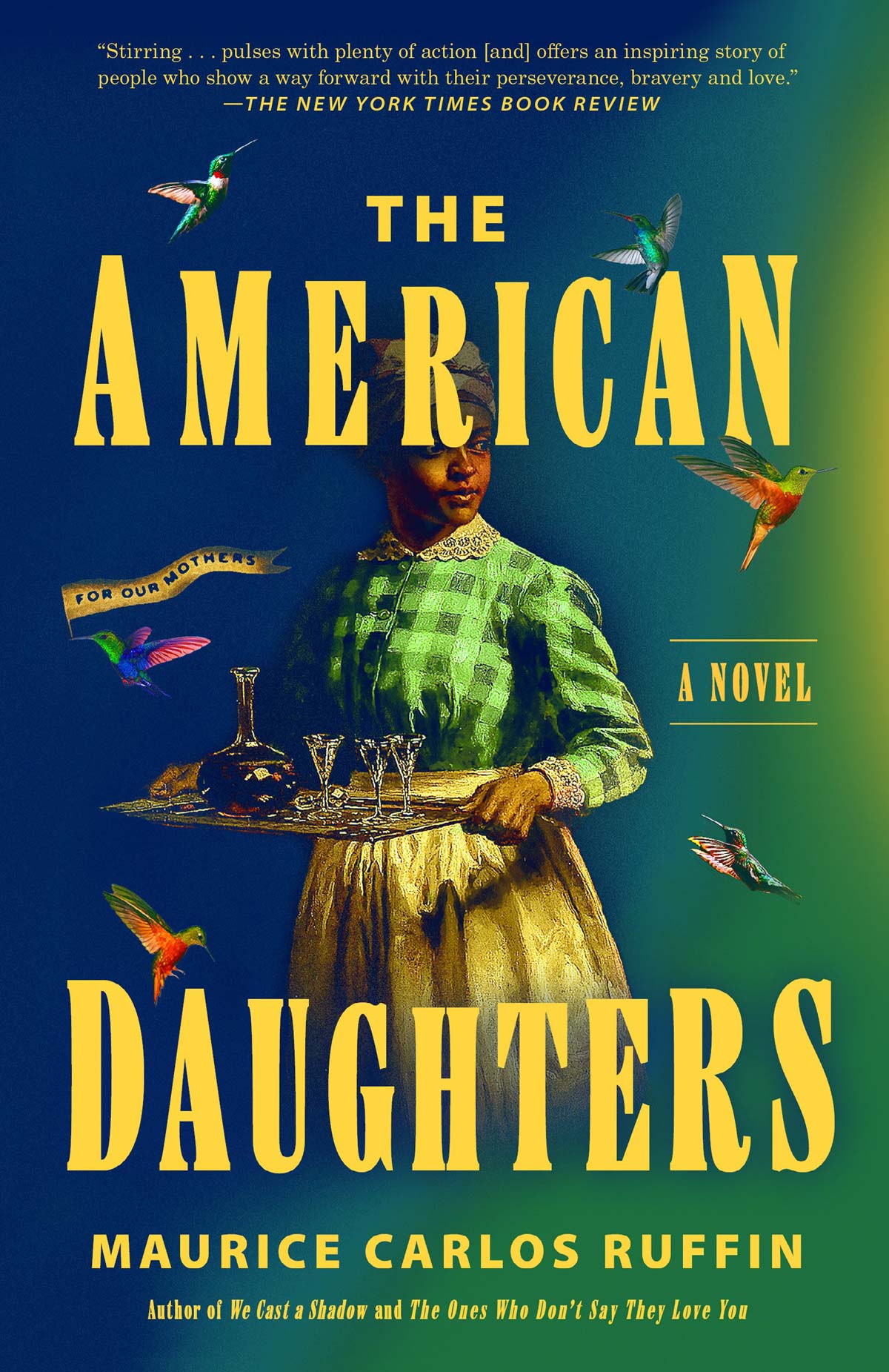What you need to know for now is that it was just like this. I wasn’t running away. I was running toward myself.”
From The American Daughters
by Maurice Carlos Ruffin
We know that spies have always been necessary and crucial to people and countries engaged in warfare. During the Civil War, there were famous and secret networks of spies on both the Union and Confederate sides.
The most well-known Black spy on the Union side was the abolitionist Harriet Tubman who organized Black soldiers to scout behind Confederate lines. She is especially renowned for her extraordinary work as an underground railroad conductor and for leading at least 300 enslaved Black people to freedom. Maurice Carlos Ruffin’s novel The American Daughters (One World, 2025) introduces the Daughters, New Orleans Black women who served as spies in the Civil War.
The central themes underlying the novel are the impact of the “Daughters” on the development of the southern confederacy and the effect of the cruel and inhumane conditions of slavery on the love between a woman and her daughter.
In The American Daughters, Ruffin describes the ways and means that a network of enslaved and free Black women sow the seeds of resistance to secure freedom for themselves, their daughters, mothers, grandmothers, and inevitably for Black people throughout the south.
These acts include sabotaging efforts by slavers, running away, poisoning meals, slowing down work, forging documents, feigning illness, and sending messages through music, dance, and hidden materials. Resistance also involves taking on aliases. One of the American Daughters informs Ade the protagonist, that “My dear, most of the people who work here use aliases. It is the nature of our society that demands it.”

Sanite, the mother of Ady, is the first person who embodies resistance in Ady’s life. She keeps her daughter close and instills in her the importance of being free, doing what is necessary to work towards that freedom, and remembering that she is a person first. She says to her daughter, “What you need to know for now is that it was just like this. I wasn’t running away. I was running toward myself.” Running thus becomes a necessary act in acquiring one’s freedom.
Ruffin knows how to engage readers and his literary techniques foreshadow events and present readers with an omniscient narrator who goes back and forth in time. Readers also encounter original documents from slavers, newspapers, and letters that provide a context for this period in the history of New Orleans.
When the novel begins Ady is a grown woman. She describes her current situation as an “entertainer” in a New Orleans Hall and then reflects on her memories of lying beside her mother as they rode in a slave catcher’s wagon with other enslaved men and women who were shackled to the floor. Readers witness Ady’s growth and maturity as she loses her mother and is forced to find a way to cope with her devastating loss. Her meeting of The Daughters, a network of women spies, is a turning point in the novel. Ady desperately wants to become one of the Daughters.
The Daughters who had many aliases . . . had been operating locally since Napoleon handed the territory off to Thomas Jefferson, if not before. Many of the Daughters had been killed in their clandestine endeavors. Whatever actions they took-whether successful or failed- were elided from all records.
Ady understands that whatever the Daughters accomplish will be forgotten, but this knowledge does not deter her; rather it strengthens her resolve to work with them.
We are familiar with the organizations Daughters of the Revolution (DAR), an organization for women who are directly descended from a patriot of the American Revolution and the United Daughters of the Confederacy (UDC) founded in 1984 for women descended from Confederate soldiers.
Ruffin’s The American Daughters, an imagined record of the acts of resistance by enslaved Black women, reminds us that all the stories of the perseverance of Blacks in America have not been told.
At a time when educational curricular across the nation are being revised to omit the presence of Black people in American history and literature, when books are being banned, when free speech is censored, and when constitutional rights are ignored or taken away, Ruffin’s novel is significant, in that it adds depth to the presence and resilience of Blacks in America and documents their strategies for resisting slavery.
Additionally, his novel emphasizes the bond between a mother and child and is part of a counternarrative that can provide readers with knowledge of the multiple forms of resistance that enslaved people may have used to secure their freedom.
The American Daughters is a New York Times Editor’s Choice. Ruffin is the recipient of many awards and the author of The Ones Who Don’t Say They Love You and We Cast a Shadow. He is an associate professor of creative writing at Louisiana State University.
Dr. Brenda M. Greene is Professor Emeritus and Founder and Executive Director Emeritus of the Center for Black Literature at Medgar Evers College, CUNY. For more information, visit https://www.drbrendamgreene.com


